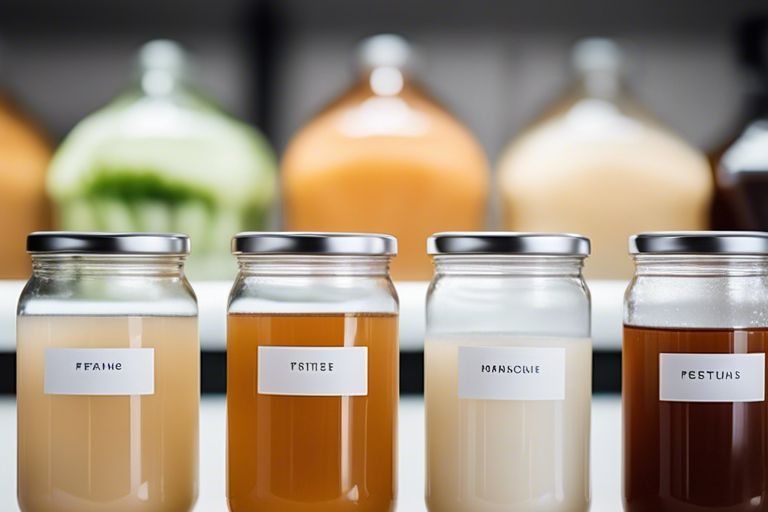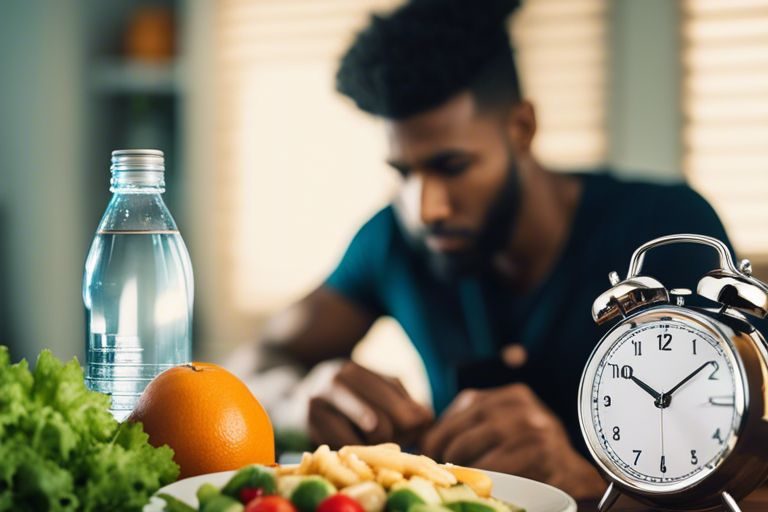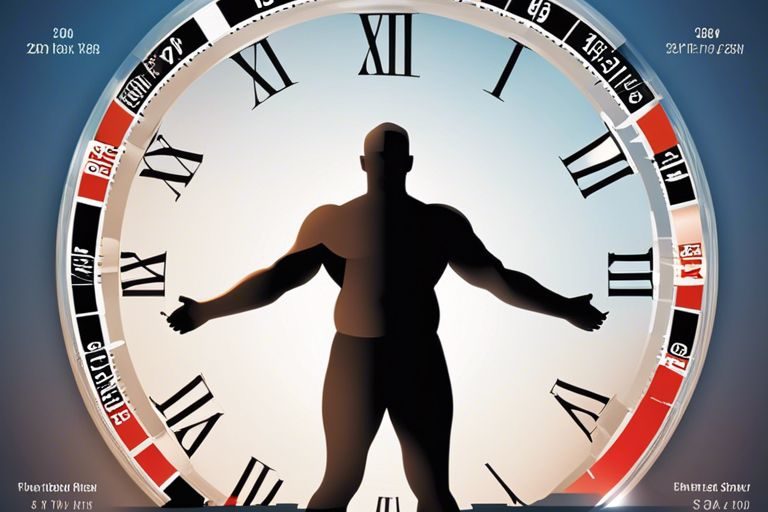
Fasting and hydration are crucial components of intermittent fasting routines, but navigating the waters – quite literally – can be tricky. It’s crucial to strike a balance between staying hydrated and ensuring fasting success. In this blog post, we’ll explore the dos and don’ts of staying hydrated while intermittent fasting, including the role of water, coffee, and other beverages in your fasting journey. Let’s dive in and unravel the secrets to optimal hydration during intermittent fasting.
Key Takeaways:
- Water is important: Staying hydrated is crucial during intermittent fasting to support bodily functions and help prevent dehydration.
- Avoid sugary drinks: When breaking your fast, opt for water, herbal tea, or black coffee instead of sugary beverages to maintain the benefits of fasting.
- Be mindful of coffee consumption: While black coffee is generally acceptable during fasting, excessive consumption can lead to negative effects such as increased heart rate and anxiety.
- Listen to your body: Pay attention to your thirst cues and adjust your water intake accordingly, especially during fasting periods to ensure proper hydration.
- Stay consistent: Establish a routine for water intake and be mindful of hydration levels to support overall health, especially when practicing intermittent fasting.
The Role of Water During Intermittent Fasting
Importance of Water for Health
One of the most crucial elements to consider during intermittent fasting is adequate hydration. Water plays a vital role in maintaining overall health and well-being, especially when you are abstaining from food for extended periods. Staying hydrated is vital for supporting various bodily functions, such as digestion, circulation, and temperature regulation.
Dehydration can lead to fatigue, dizziness, and headaches, which can be particularly challenging to manage during intermittent fasting. By ensuring sufficient water intake, you can help prevent these adverse effects and support your body in adapting to the fasting routine.
Recommendations for Water Intake
The general recommendation for daily water intake is around 8 glasses, which is approximately 2 liters. However, during intermittent fasting, it is vital to pay extra attention to your hydration levels. The ideal approach is to listen to your body’s cues and drink water whenever you feel thirsty. It’s also beneficial to consume water-rich foods like fruits and vegetables to supplement your fluid intake.
The key is to strike a balance between consuming enough water to stay hydrated and avoiding excessive intake, which can lead to electrolyte imbalances. If you find it challenging to drink plain water, herbal teas, infused water, or electrolyte-enhanced beverages can be suitable alternatives to keep you hydrated during fasting periods.
Fasting can increase the body’s need for water, as it utilizes stored glycogen and fat reserves, which release water as a byproduct. Therefore, staying adequately hydrated is vital to support your body’s metabolic processes and overall well-being while practicing intermittent fasting.

Coffee and Intermittent Fasting
There’s something about the aroma of freshly brewed coffee that can be hard to resist, especially during fasting periods. Many people wonder if they can have coffee while fasting and if it affects the benefits of intermittent fasting.
Can You Drink Coffee While Fasting?
Coffee is a widely debated topic in the fasting community. While black coffee is considered acceptable during fasting periods due to its low-calorie content, adding sugar, milk, or creamer can break your fast. The caffeine in coffee can also help suppress appetite and boost metabolism, which may aid in weight loss efforts during intermittent fasting.
The Impact of Coffee on Hydration
For some individuals, the diuretic effects of coffee may raise concerns about its impact on hydration levels during fasting. While coffee can have a mild diuretic effect, moderate consumption is unlikely to cause dehydration. It’s crucial to balance your coffee intake with an adequate water intake to ensure you stay hydrated while fasting.
Fasting can already lead to increased water loss through processes like breathing and sweating. Adding coffee to the mix can potentially exacerbate this effect, making it crucial to pay attention to your body’s hydration signals and adjust your coffee consumption accordingly.
Other Beverages and Intermittent Fasting
Once again, when practicing intermittent fasting, it’s vital to consider the impact of different beverages on your fasting period. While water and black coffee are safe bets, other beverages may have varying effects on your fasting state. Let’s explore some common options and how they may fit into your fasting routine.
Herbal Teas and Their Benefits
Intermittent fasting allows for the consumption of herbal teas during fasting periods. Herbal teas are a great way to add flavor to your drinks without breaking your fast. Additionally, certain herbal teas, such as chamomile or peppermint, can have calming effects on the body, which may help manage hunger or cravings during fasting periods. Be mindful of any added sweeteners or ingredients that could potentially disrupt your fast and opt for plain herbal teas for maximum benefits.
Navigating Electrolytes and Sports Drinks
An important consideration when incorporating electrolytes and sports drinks into your fasting routine is their impact on insulin levels. While electrolytes are vital for hydration and overall bodily function, some sports drinks can contain added sugars or artificial sweeteners that may break your fast. Opt for electrolyte supplements or powders that are low in calories and carbohydrates to support your fasting goals without compromising the benefits of fasting.
It’s crucial to read labels carefully and choose electrolyte options that align with your fasting objectives. Consult with a healthcare professional or a nutritionist to determine the best electrolyte sources for your specific fasting plan. Maintaining proper electrolyte balance can enhance your fasting experience and support overall health and well-being.
Common Myths and Questions
Debunking Intermittent Fasting Hydration Myths
To set the record straight, not drinking water during fasting will not lead to dehydration. Your body is remarkably adept at regulating water balance, and short periods without water, such as during fasting, do not pose a significant risk of dehydration. In fact, fasting can actually improve your body’s ability to retain water and maintain balance.
To address another common myth, coffee does not necessarily break a fast when consumed without added sugar or cream. In fact, black coffee can be a useful tool in managing hunger and cravings during fasting periods, thanks to its appetite-suppressing effects. Just be mindful of your overall caffeine intake and how it affects your body.
Frequently Asked Questions Addressed
Hydration plays a crucial role in supporting your body during intermittent fasting. Staying adequately hydrated can help mitigate common side effects of fasting, such as headaches, fatigue, and dizziness. It’s necessary to listen to your body and drink water when you feel thirsty, even during fasting periods.
Myths surrounding intermittent fasting and hydration can be confusing, but it’s important to remember that your body is resilient and can adapt to short periods without food or water. By staying informed and listening to your body’s signals, you can navigate intermittent fasting while maintaining proper hydration levels.
To wrap up
Presently, understanding how hydration fits into intermittent fasting is crucial for maintaining overall health and well-being. While water is always a safe bet during fasting periods, it’s important to be mindful of other beverages like coffee and tea that can impact the fasting state. Opting for black coffee or plain tea without additives is the best way to stay hydrated while fasting. Recall, consistency is key in finding the right balance between hydration and intermittent fasting to support your health goals.
FAQ
Q: What is intermittent fasting?
A: Intermittent fasting is an eating pattern that cycles between periods of fasting and eating. It does not prescribe specific foods to eat or avoid but rather focuses on when you should eat.
Q: How does hydration play a role in intermittent fasting?
A: Staying hydrated is crucial during intermittent fasting as it helps regulate bodily functions, aids in digestion, and can help reduce hunger cravings.
Q: Can I drink water during intermittent fasting?
A: Yes, you should drink water during fasting periods to stay hydrated. Water is calorie-free and will not break your fast.
Q: What about coffee or tea during intermittent fasting?
A: Plain black coffee and unsweetened tea are generally allowed during fasting periods as they are low in calories and can help curb hunger. However, be cautious with adding sugar or cream as it may break your fast.
Q: How much water should I drink while intermittent fasting?
A: It is recommended to drink at least 8-10 cups of water per day while intermittent fasting to stay adequately hydrated.
Q: Are there any other beverages I can consume during fasting periods?
A: You can also drink herbal tea, sparkling water, or infused water during fasting periods as long as they are free from sugars, sweeteners, or additives that may impact your fast.
Q: What are signs of dehydration to watch out for while fasting?
A: Signs of dehydration include dark urine, dry mouth, dizziness, fatigue, and headaches. If you experience any of these symptoms, make sure to drink water immediately.







